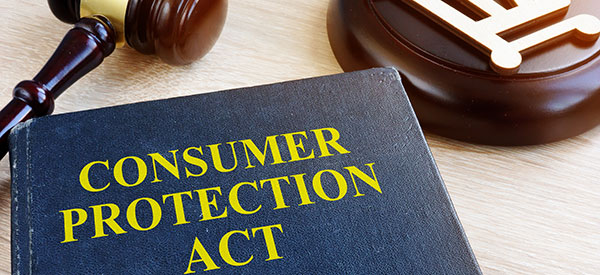
GET A FREE QUOTE
Simply fill out this form and a reputable lawyer in your area will contact you as soon as possible.


Request your quote now!


Simply fill out this form and a reputable lawyer in your area will contact you as soon as possible.


Request your quote now!
The legal profession is full of formalities, mystery, and many urban legends. There is no point in hiding the stories about lawyers and fence lines in our collective imagination, to say the least. However, despite the opinion that prevails about this profession, when the need for legal representation arises, it is best to stick to the facts to get the best advice possible.

So what is the real role of a lawyer? What are his responsibilities towards you? What distinguishes a civil trial from a criminal trial? These are valid questions and we want to help you understand more. The lawyer is your representative and indispensable ally in the legal system. We will present his role to you in more detail so that you can find the best lawyers in Lévis!
A lawyer is a legal professional who offers his representation to the community. He plays the role of agent, adviser, and legal ally. He knows how to help clients get out of all types of legal problems; that’s what makes him such an indispensable professional. But specifically, what makes it vital to consult a lawyer?
Sound advice. Backed by a university education and the successful completion of the Quebec Bar School, lawyers are uniquely competent to provide legal advice. Not only are they adept in almost every area imaginable, but their expertise greatly increases your chances of winning your case.
Quick resolution. Whether through out-of-court settlement or private dispute resolution, lawyers know enough about the legal world to know how to expedite the resolution of issues before them. While they have no control over the delays and complexities of the legal system, they will be able to advise you on which road to take!
Unique expertise. No other expert can advise you like a lawyer does! Indeed, even notaries, who are important in their right, cannot intervene for the same disputes as lawyers.
By going to see a lawyer in Levis, you are sure to get a first-rate legal service!
In addition to the benefits of hiring a lawyer, it’s important to know what their area of expertise looks like and the scope of their services. The versatility of lawyers is certainly what makes them such skilled and sought-after professionals. In particular, they work in the following specializations:

What are the requirements to be eligible for legal aid? The legal aid system was put in place to help people in the greatest need for legal representation. Thus, scales are provided to determine the amount of eligible legal aid.
Income brackets, therefore, make it possible to obtain a determined amount and, when these are too low, legal assistance is completely free. It is therefore advantageous to inquire about such a service. Also, a lawyer who notices a precarious financial situation with one of his clients is required to inform the latter of the availability of such a program.
Civil law is made up largely of the contractual system that governs agreements between individuals. This system includes very precise rules of equity and operation. This is also accompanied by a certain complexity which justifies the intervention of a lawyer for the drafting of your contract!
The major principles of contracts
Far too many people are falsely led to believe that a contract, to be valid, must be written on a piece of paper. This is far from the case, however! The Civil Code of Quebec makes no mention of such a requirement. The law only mentions a simple exchange of consent between two people capable of entering a contract.
This implies that when you make a verbal offer to a person and that person accepts it unequivocally, you are bound by a formal verbal contract. The problem? Prove it during non-performance, of course!
The basic elements of a contract
Capacity: For a contract to be valid, both people entering into an agreement must have the legal capacity to do so. They must therefore have the capacity according to their age, but also to their mental state.
The offer: For an offer to be considered as such within the meaning of the law, it must demonstrate a firm and specific desire to contract. It must also contain all the essential elements of the envisaged contract, otherwise it will not qualify as a real offer.
Acceptance: On the other hand, acceptance will be considered as one when the recipient of the offer shows a clear desire to contract according to the terms of the offer received. As long as an ambiguity arises at the level of the will, it will be impossible to consider acceptance as validly formulated.
The annulment, resolution, and termination of a contract with a lawyer! Do you find the formation of a contract complex? What is a breach of contract? Indeed, when a party refuses to honor the contract concluded or a flaw has crept into the formation of the agreement, it will be possible to have it canceled. Don’t think it’s going to be overnight. The services of a lawyer will be essential, to be sure!
The principle of contractual freedom and respect for an agreement given requires that the parties to a contract respect their commitments, whether or not these prove to be disadvantageous at a later date. However, this principle has several nuances in the consumer contract because of the balance of power that exists between manufacturers of consumer products and consumers.
What are the specifics of a consumer contract? First of all, they must be in writing. Indeed, while the traditional contract between individuals can be formed verbally, that between a trader and a consumer must be in writing. Moreover, it is imperative that the merchant provide a copy when executing the contract.
As for the terms of the contract itself, the law has additional requirements in terms of the clarity of the terms and the clauses which appear therein. While an ambiguous clause in an ordinary contract must be subject to interpretation by the court according to the rules provided for in the Civil Code of Quebec, a consumer contract that includes an illegible or incomprehensible clause will be invalid.
Which contracts qualify as “consumer”? To name a few examples, online purchase contracts, gym memberships, and automobile rental contracts all qualify as rental contracts and are therefore subject to the special contractual provisions of the Consumer Protection Act.
For the protections under the Consumer Protection Act to apply, you must have entered into a consumer contract. Specific criteria are defined for a contract to be considered as such, and here they are!

First of all, you must be a natural person having contracted in your own name. A natural person is any individual who is not a legal person, that is to say, an incorporated company. For the purposes of the application of the Consumer Protection Act, this person must contract for his own account to benefit from legal protections and not for the benefit of a business.
In addition, this same contract must have been concluded with a merchant. How is such a person defined within the meaning of the law? It is any person carrying out an organized economic activity taking part in the trade in goods. The law does not specify a minimum size for the trader; it just needs to be in business.
It should also be noted that contracts concluded with professionals such as notaries, accountants and lawyers will not be considered as consumer contracts as these are not deemed to carry out commercial activities within the meaning of the law.
What to do when you have entered into an abusive or invalid contract? Consult a lawyer in order to bring an action in the Small Claims Court or the Court of Quebec depending on the value of the consumer goods! The fact that the merchant is a multinational does not exempt him from the application of the law and you can always assert your rights.
Have you ever bought a device or other consumer item that broke down after just a few weeks of use? Frustrating, isn’t it? It is precisely to avoid such scenarios that the Consumer Protection Act put in place the guarantee provision in order to ensure consumers a certain shelf life for the goods they purchase. The legal warranty and the conventional warranty are the two main protections that we present to you below!
What the legal warranty covers: The legal warranty is the basic protection that every merchant must offer. In fact, it accompanies any item sold even if the trader has not explicitly provided for it and it is directly linked to the goods, which means that even second-hand buyers can avail of it if it has not expired.
The legal guarantee is one which is divided into several parts. Above all, it covers the quality of the good purchased so that the buyer can at least make “normal” use of it. Such a broad term must be adapted according to each type of product. In short, if you bought a bread toaster, you must be able to toast bread. If this is not the case, the legal warranty applies.
This warranty also provides that the product must have a reasonable lifespan. As each product has a different lifespan, the reasonableness of its lifespan will depend on its nature. Obviously, your new car will outlast your bread toaster.
The purchased product must also, by law, conform to the description promised not only in the contract concluded, but also to the advertising of the product as well as to the representations made by the seller. This protection is an integral part of the legal guarantee as is the safety of the item in the sense that it should not legally endanger the safety of the user, except for the items that are inherently dangerous.
Finally, the legal guarantee of quality protects the consumer against hidden defects. This must be significant, serious, and not apparent. The defect is considered serious if, at the time of the sale, had you would not have bought the product if the defect had been disclosed to you. It will be serious if the product cannot function the way it is supposed to.
What the conventional warranty covers: As mentioned, the legal warranty is the minimum mandatory threshold; it always applies and the merchant cannot disregard it. On the other hand, conventional guarantees are additional protections that the merchant offers to his customers in order to guarantee the quality of his product for a period longer than the legal guarantee or to extend the coverage in terms of quality.
The conventional warranty can come either from the manufacturer, the merchant who sells the product, or even both! The conventional warranty may contain any contractual warranty clause that the manufacturer or merchant wishes, but be aware that if this is less advantageous than the legal warranty, the latter will apply and your conventional warranty will only apply to the extent that it is more profitable to you.
Like the legal guarantee, the conventional one can also be attached directly to the product purchased. Thus, the buyer of the used item can also take advantage of the conventional guarantee as long as it is still in force.
When a product of high value that was recently purchased is lacking, it is important to take advantage of the protections offered by the Consumer Protection Act, and quickly! To assert your rights, you need a lawyer who is knowledgeable in the field and who can represent you against merchants.
While civil law issues are of some importance, these problems always appear to be less serious compared to criminal charges. Indeed, when a criminal record or a jail sentence hangs you’re your head, it is a serious charge. This inevitably requires the involvement of a criminal lawyer. See for yourself how a criminal charge works in its different stages.

The stages of a criminal charge
Arrest: The first step in the criminal charge process is the arrest by a police officer. The accused is brought to the station and is given a subpoena indicating the day he is due in court. However, if the accused is found to be a danger, he will be held in custody until his trial or until a judge orders his release.
Appearance: Shortly after the arrest, the accused makes an appearance during which the criminal charges against him are read to him. The latter, at the same time, will enter his plea of guilty or not guilty. Evidence accumulated against the accused is also provided to him so that he can defend himself properly.
Provisional release hearing: When an accused is deemed to be dangerous to society, he will be kept in detention for the duration of the proceedings. The latter may, however, oppose such a measure and demand the holding of a provisional release hearing during which he will try to convince the judge that he does not represent any danger and that he has the right to be released pending the outcome of the proceedings.
Preliminary Inquiry: The preliminary inquiry is not used to determine the guilt of the accused, but rather to verify whether the crown has sufficient evidence to hold a trial. The judge will, therefore, analyze the accumulated evidence and decide whether it is sufficient. Otherwise, the charges will be dropped.
Trial and verdict: This is the time when the prosecutor and the defense present their case before a judge or a judge and jury. When a judge sits alone, he is the master of the proceedings and the decision- he renders the verdict of guilty as well as the sentence imposed. When the judge is accompanied by a jury, the jury will decide on the guilt while the judge will render the verdict on the sentence.
Sentencing Representation (If necessary): When a person is found guilty, a sentencing representation will be required. The two parties will present their recommendations on the recommended length of imprisonment or the possible alternatives (probation, intermittent sentence, etc.).
Appeal (if necessary): In the event of an opposition, a person can submit a request to appeal the decision. It is important to state that the appeal is not a second trial but a review of the application of the law to the facts. The trial judge, therefore, remains the master of the facts and the appellate court will be satisfied with determining whether an error of the law appears in the judgment.
Since very few people have dealt with a lawyer in their lifetime, how such a process works may be foreign to many. The flow of the initial meeting, the follow-up, and the necessary client involvement are all important to have a response. Here is what to expect for your first meeting and the various elements to prepare.

As we mentioned earlier, asking questions during the first meeting with a lawyer is essential. All of your worries should be relayed to him. However, you may want to ask questions you haven’t even thought of! That’s why we’ve put together a short list for you!
What are your work methods?
Will he contact you regularly to follow up on the case? Will he send you email updates? How do you collaborate on the case in a meaningful way? By talking to your lawyer about his working methods, you will also know what to expect from him and what you need to do for your case.
What dispute resolution alternatives are available for your case?
Going to court is a tedious process. So it is truly an option of last resort that lawyers use when parties fail to come to an amicable agreement. As such, you should ask your lawyer from the outset about your out-of-court settlement options. It could save you time and money!
Does he have experience with cases similar to yours?
The experience a lawyer has in resolving cases similar to yours influences not only your chances of success but also the time required to resolve the case. As his experience influences the price you will pay and, possibly, the verdict, it is important to ask him for a professional history of the cases he has taken on during his career.
In his opinion, what are your chances of winning?
You never know which side a judge will decide in court but with experience, lawyers are usually able to determine your odds of winning from the first moments of analyzing your case. Obviously, the more your case ends up in a gray area of law, the more difficult it will be to determine your chances but ask the question all the same!
What type of fees does he charge and how much does he estimate the total amount will be?
Lawyers have the choice of charging an hourly rate, percentage rate, provisional, or a lump sum. You should definitely discuss this with your lawyer because no matter how it works, remember that legal expertise is never cheap! Request an estimate of the cost of his services!
What can you do to help?
Even if you pay for a lawyer to resolve your case, providing a helping hand will speed up the resolution of the case. Even if you don’t know anything about law, arriving prepared for meetings and delivering the requested documents as soon as possible will speed up the process, that’s for sure!
There are different kinds of lawyers. This is why there are several qualities that can make a good lawyer. However, we have seen certain standards in the legal community that you should try to find in your lawyer.
Professionalism: The law is a very serious and formal environment. Your expert should, therefore, demonstrate a certain level of professionalism. This will give you confidence and make a good impression in court.
Tenacity: The practice of law is complex and demanding. Therefore, a good lawyer cannot afford to turn corners; their research must be done in depth if you want to have the best possible chances of winning your case.
Critical thinking: A trial is a debate before a third party with decision-making power. Your lawyer must have a sharp and critical mind that will allow him to convince a judge that his interpretation of the law is indeed the right one!
Communication: Communication between a lawyer and his client is the key to a successful professional relationship. If your legal expert is unable to keep you informed of developments in your case, you may be better served by someone else!
In Lévis, lawyers want nothing more than to help you settle your legal disputes and meet all your representation needs. They can help settle your dispute as quickly as possible and at a price that meets the most reasonable industry standards!
All you have to do is complete our form to receive 3 free quotes from lawyers working in the city of Lévis!
This service is free and no obligation so don’t hesitate to compare lawyers
to find the best one for you!


Simply fill out this form and a reputable lawyer in your area will contact you as soon as possible.


Request your quote now!